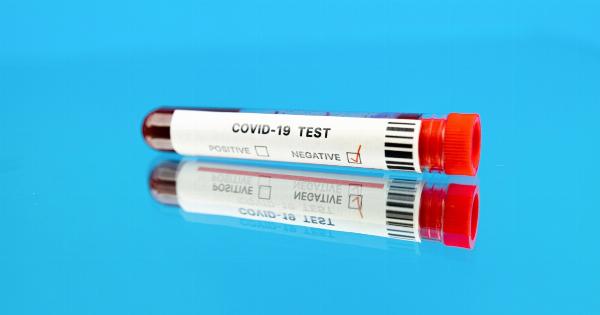As a woman, it is important to have a clear understanding of your menstrual cycle and the various signs and symptoms associated with it. One common question that often arises is whether having regular periods indicates that you are not pregnant.
In this article, we will explore this topic in detail and provide you with the answers you need.
What is a Period?
A period, also known as menstruation, is a part of the female reproductive cycle that occurs roughly every 28 days. It involves the shedding of the uterine lining, which is released through the vagina.
The purpose of menstruation is to prepare the uterus for a potential pregnancy each month.
Can You Still Get Your Period While Pregnant?
While it is rare, it is possible for some women to experience light bleeding or spotting during pregnancy, which can be mistaken for a period. This is known as “pregnancy bleeding” and is different from a regular period.
Pregnancy bleeding is typically lighter and shorter in duration compared to a typical menstrual period.
It is important to note that pregnancy bleeding is not the same as the heavy bleeding associated with a regular period.
If you experience heavy bleeding, severe cramping, or any other abnormal symptoms during pregnancy, it is crucial to consult your healthcare provider as soon as possible.
Why Do Some Women Get Period-like Symptoms During Early Pregnancy?
During early pregnancy, some women may experience symptoms that are similar to those associated with periods. This can include bloating, breast tenderness, mood changes, and slight cramping.
These symptoms can often be confusing and lead to questions about whether one is pregnant or not.
This confusion arises because during early pregnancy, the body goes through hormonal changes that can cause similar symptoms to those experienced during a period.
However, it is important to remember that these symptoms alone do not confirm or rule out pregnancy, as they can also be caused by other factors such as hormonal imbalances or premenstrual syndrome (PMS).
How Can I Determine if I am Pregnant?
If you suspect that you may be pregnant, the most reliable way to confirm it is by taking a pregnancy test.
Home pregnancy tests are readily available over-the-counter at pharmacies and can detect the presence of the pregnancy hormone, human chorionic gonadotropin (hCG), in your urine.
It is typically recommended to wait until you have missed your period to take a pregnancy test. This is because it can take a few weeks after conception for hCG levels to rise enough to be detected.
However, there are also early detection pregnancy tests available that can give accurate results a few days before your expected period.
Understanding Pregnancy and the Menstrual Cycle
When a pregnancy occurs, the fertilized egg implants itself into the lining of the uterus. This implantation triggers hormonal changes that prevent the shedding of the uterine lining, and as a result, the menstrual cycle is disrupted.
It is important to remember that not all women will experience the same symptoms or changes during pregnancy. Some women may continue to have regular periods throughout their pregnancy, while others may not have a period at all.
Is it Normal to Have Irregular Periods?
Yes, it is normal for some women to have irregular periods occasionally. Factors such as stress, changes in weight, hormonal imbalances, certain medications, and medical conditions can all contribute to irregular menstrual cycles.
However, if you experience consistently irregular periods or notice any sudden changes in your menstrual cycle, it is recommended to consult a healthcare professional.
They can help determine the underlying causes of your irregular periods and provide appropriate guidance and treatment if necessary.
When Should I Seek Medical Advice?
While it is generally normal to have regular periods and still not be pregnant, there are certain situations where seeking medical advice is recommended. These include:.
1.
Missed Period and Negative Pregnancy Test: If you have missed your period, taken a pregnancy test, and it is negative, but you are experiencing symptoms such as severe abdominal pain, excessive bleeding, or unusual discharge, it is important to consult a healthcare provider.
2.
Unexplained Changes in Your Menstrual Cycle: If you notice sudden changes in your menstrual cycle pattern, such as heavier or lighter periods, irregular bleeding, or significantly shorter or longer cycles, it is advisable to seek medical advice.
3. Difficulty Conceiving: If you have been actively trying to conceive for a year (or six months if you are over 35) without success, it is recommended to consult a fertility specialist to investigate potential underlying causes.
The Bottom Line
In conclusion, having regular periods does not necessarily indicate that you are not pregnant. Some women may experience light bleeding or spotting during pregnancy, which can be mistaken for a period.
To determine if you are pregnant, it is best to take a pregnancy test if you suspect you may be pregnant or seek medical advice if you notice any unusual changes in your menstrual cycle.































